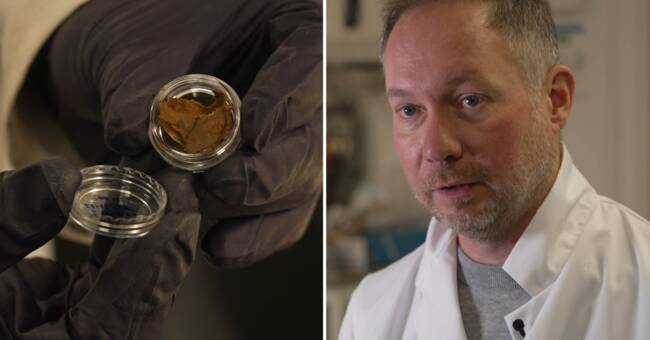Fungi that eat oils could process contaminants in mines and refineries, or along coasts where oil has flowed ashore.
And fungi could extract valuable metals from scrap.
This is what research has long sought - and now it is no longer a fantasy.
"The decomposition of the oils has proven to be quite rapid and almost total," states researchers at the Swedish Museum of Natural History in Stockholm after a series of experiments.
"Tough organisms"
Geobiologist Magnus Ivarsson has been looking for oil-degrading fungi for several years in deep, dark places.
- I could see in the subway under Kungsträdgården in Stockholm that fungi encapsulated oil in their cells and broke it down.
It gave rise to the idea of taking it one step further and harnessing their potential.
Give them a push so that they become more efficient, says Magnus Ivarsson.
- Fungi are very tough organisms.
They are looking for the carbon in the oil, the hydrocarbons that are there.
They do not care that the oil may be toxic to us.
The more oil, the more diesel, the dirtier the environment - the more food for them, quite simply.
Built a prototype
Now Magnus Ivarsson and colleague Kristoffer Palmgren have built a first prototype for a treatment plant where fungi do the job.
- We started with test tube experiments.
Then we peeled up to liters.
Now we are ready to handle tons.
The principle works, says Magnus Ivarsson.
They have done one more thing: Some mushrooms also like metal.
So they put scrap metal in test tubes and let the fungi release and take up, for example, copper or rare earth metals.
These are needed in, for example, electric car batteries and wind turbines, but there is a shortage of them today.
- We have an enormous amount of waste from mines in Sweden, with metals that we do not want to leak into nature.
Here we do a kind of biological mining, says Magnus Ivarsson.
- The fungi can absorb selected metals.
So we can basically use the same method to clean the environment that we use to acquire valuable assets that the industry may need.
A lot of money
When will it be a real treatment plant?
They have contact with stakeholders, and in one case there is an opportunity that could be lost in 2022.
There is potentially a lot of money in this technology, and a risk that others will try to steal their ideas.
- Yes, it is a lot of money and there is definitely a risk that others are looking for our solutions.
But none of what we do is unknown.
And now we are working on a real project for a test facility with a stakeholder, says Magnus Ivarsson.

